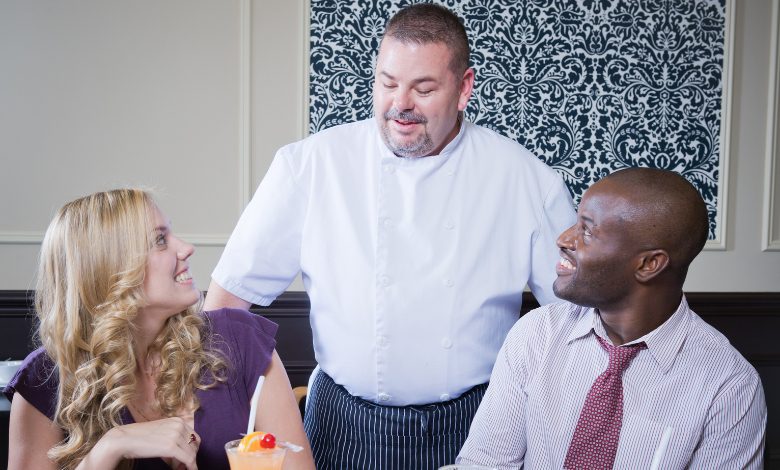Get hired faster with these radically unique and detailed server interview questions and expert-level answers that stand out.
Interviewing for a server position might seem straightforward, after all, it’s just food and drinks, right? Not quite. Today’s hospitality landscape demands more than memorizing a menu or balancing a tray. Employers are hunting for individuals who bring poise under pressure, razor-sharp communication skills, deep situational awareness, and that rare gift of turning a guest’s day around in a single interaction.
So whether you’re prepping for your first serving job, aiming for a high-end establishment, or exploring server interview preparation for remote jobs in virtual hospitality or customer support roles, this is your ultimate guide to server interview questions, crafted with a fresh, radically helpful approach. No fluff. Just high-impact prep.
Article Breakdown
Why Server Interview Questions Deserve Serious Preparation
Let’s clear the air: being a server is not a fallback job. It’s a demanding, people-driven role with real-time problem-solving, constant multitasking, and emotional intelligence baked in. Employers know this. That’s why their interview questions dig deeper than you might expect.
Most candidates walk in underprepared. You won’t.
You’ll walk in with insight, strategy, and a toolkit of answers that demonstrate not just capability, but character.
What Employers Are Really Looking For
It’s not about perfect posture or knowing the wine list backward. It’s about showing that you can own the floor, diffuse tension with grace, and deliver consistent excellence under pressure. Here’s what your interviewer is silently measuring:
- Reliability: Can they count on you when it’s slammed at 8 PM on a Saturday?
- Team Spirit: Do you contribute to a seamless shift or drag the team down?
- Guest Awareness: Are you a robot or someone who notices what guests need?
- Upselling Skill: Can you elevate a $20 tab to $40 without being pushy?
- Grace Under Fire: Do you fall apart when something goes wrong, or step up?
Every question they ask is designed to reveal one (or more) of these traits. That’s our roadmap.
The Most Common Server Interview Questions (And How to Nail Them)
Tell me about yourself.
This isn’t an open diary moment. It’s your opportunity to showcase traits employers want.
Radical Answer Strategy: Highlight service experience, fast learning, adaptability, and a people-first attitude, then finish with one memorable hook.
Sample: “I started working in fast-paced cafés in high school, and I fell in love with the rhythm of service. Since then, I’ve worked in two high-volume restaurants, mastered three POS systems, and developed a knack for reading guests before they say a word. My favorite challenge? Turning difficult tables into loyal regulars.”
How do you handle a rude or difficult customer?
This is not about being passive or combative. It’s about showing maturity and composure.
Radical Answer Strategy: Use the acknowledge–empathize–resolve framework.
Sample: “If a guest is upset, I start by listening without interruption. I validate their experience, ‘I understand this isn’t what you expected’, then find a solution or escalate if needed. People often just want to feel heard. Once they see I care, the tension usually drops.”
What would you do if your section was triple-sat and you were falling behind?
This is a pressure-test question. They’re asking: Will you panic or prioritize?
Radical Answer Strategy: Show that you don’t freeze. You strategize.
Sample: “I take 30 seconds to scan all tables and triage. First, I greet all tables so no one feels ignored. Then I assess who needs drinks, menus, or orders first. I communicate with teammates, maybe ask for help running food. Staying calm and managing expectations keeps things from spiraling.”
How do you upsell without being pushy?
Upselling is part of your role, but doing it naturally is an art.
Radical Answer Strategy: Make it sound like service, not sales.
Sample: “I upsell by suggesting pairings that enhance the guest’s experience, like recommending a wine that complements their entrée or a dessert that finishes the meal on a high note. I watch for cues in their order and tone. If someone seems undecided, I guide them with enthusiasm, not pressure.”
What do you do if a coworker isn’t pulling their weight?
Ah, the team dynamics test. Employers want someone who’s assertive but not toxic.
Radical Answer Strategy: Balance diplomacy with directness.
Sample: “I believe in open, respectful communication. If it’s a one-time thing, I pick up the slack and move on. But if it becomes a pattern, I talk to them directly, ‘Hey, I noticed you’ve been swamped. Anything I can help with?’ If it continues, I’d involve a manager professionally.”
What’s your biggest strength as a server?
Avoid clichés like “I’m a people person.”
Radical Answer Strategy: Show a unique trait with proof.
Sample: “My ability to anticipate needs. I once had a four-table section during a brunch rush, and I noticed a family with kids needed fast service. I got their order in quickly and brought out some crackers to tide the kids over. They thanked me for thinking ahead, it’s the small things that win loyalty.”
What’s your biggest weakness?
This classic can sink candidates if answered wrong.
Radical Answer Strategy: Pick a real but fixable flaw, one that doesn’t hurt service quality, and show active improvement.
Sample: “I used to over-apologize for mistakes, even small ones, which sometimes made things seem worse than they were. I’ve worked on staying confident and solution-focused instead, guests respond better to calm, competent problem-solving.”
Situational and Behavioral Interview Questions
This section digs into real-world scenarios. Use the STAR method, Situation, Task, Action, Result.
Describe a time you handled a high-stress shift.
Sample: “During a holiday weekend, we were understaffed and overbooked. I stayed focused by organizing my section, asking the host to space out seatings, and supporting the kitchen with clear ticket notes. We had no major complaints, and a guest left a 25% tip with a note thanking me for staying calm.”
Have you ever had to cover for someone unexpectedly?
Sample: “Yes, once a coworker called out right before a Saturday night shift. I offered to stay and take a double. I adjusted my pace, leaned on my teammates, and managed to maintain service standards. That night, the manager thanked me in front of the team.”
Tell me about a time you had a miscommunication with the kitchen.
Sample: “I once rang in a modified order but didn’t clarify the guest had an allergy. The kitchen caught it, and I was grateful. Since then, I’ve made it a rule to verbally communicate allergy orders and double-check the receipt. It taught me to never assume, details matter.”
Smart Questions You Should Ask the Interviewer
Flip the script. Interviews aren’t just about them judging you. You should judge them, too.
Ask questions that show you think like a pro:
- “What does a typical Friday night shift look like here?”
- “How does the team handle double-sat sections?”
- “How do you support servers during rush periods?”
- “What qualities do your top-performing servers share?”
These questions show that you’re not just after a paycheck, you’re invested in contributing to a strong service environment.
Bonus Round: Questions for High-End Dining or Hotel Roles
These roles demand a more elevated touch. Expect questions like:
How do you describe a dish to a guest unfamiliar with fine dining?
Sample: “I describe dishes by highlighting flavor, texture, and origin, ‘This is a buttery, pan-seared sea bass, served on a silky cauliflower purée, finished with lemon-thyme beurre blanc.’ The goal is to make it vivid, not intimidating.”
What experience do you have with wine or cocktail pairings?
Sample: “I’ve worked with in-house sommeliers and studied basic pairings, like how acidity in wine can balance fat in a dish. I love learning more about flavor profiles and enjoy making thoughtful recommendations based on the guest’s palate.”
Key Takings
- Know the deeper purpose of each question, it’s not just about food; it’s about problem-solving, team energy, and guest satisfaction.
- Prepare your answers using personal, memorable stories and STAR format for situational questions.
- Think like a leader, not just a server, show initiative, awareness, and growth.
- Avoid canned answers, inject personality and strategy into each response.
- Ask smart questions that reflect your standards and experience level.
- Treat every interaction as storytelling, show the value you bring through real-life examples, not generic traits.
Additional Resources:
- How To Answer Server Interview Questions: This article provides specific server interview prompts followed by sample responses, covering customer service, payment methods, handling complaints, and more.



